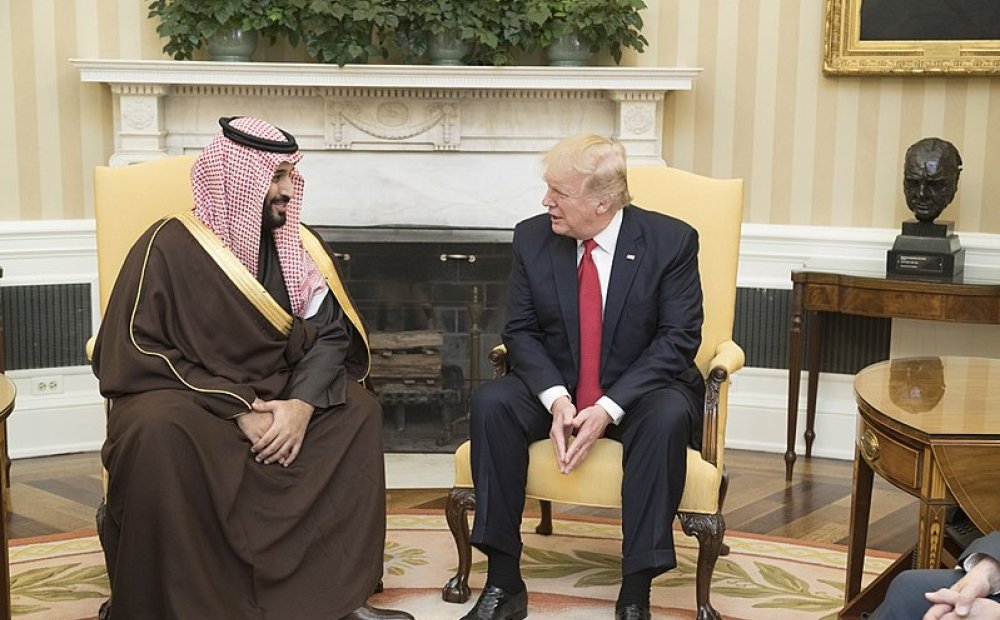The Visit of Crown Prince Mohammed bin Salman: Where Is the U.S.-Saudi Relationship Headed?

Saudi Crown Prince Mohammed bin Salman will make a much-anticipated visit to the United States beginning March 19, starting in Washington to meet with President Trump. The trip comes at a time in which his domestic and foreign policies have shaken up the region, creating opportunities and challenges for U.S. strategy in the Middle East.
What will this visit yield? And where is Saudi Arabia headed, both internally and in its neighborhood?
Three veteran observers of Saudi Arabia analyzed the Kingdom’s internal affairs, its policy toward Yemen and Qatar, and the U.S.-Saudi relationship.
Selected Quotes
Jane Harman
“[Crown Prince bin Salman's] rise has been remarkable in a region where leaders are more constrained than not. He has altered the political landscape of his country and brought a new assertiveness to Saudi foreign policy that provides both challenges and opportunities for U.S. policy.”
“It is dazzling to think about where Saudi Arabia was and where they’re hoping they are going as part of this 2030 plan.”
Aaron David Miller
“These days, when people ask me what’s new in the Middle East, I say two words: Saudi Arabia. It’s really rare that you get a leader this unconstrained, this bold, and this potentially transformative in a region that has serious leadership deficit.”
“[Crown Prince bin Salman] is already probably… the most powerful Saudi leader since Abdul Aziz ibn Saud. Perhaps, in many respects, given how time has changed, even more powerful.”
“As David Ottaway has [said] repeatedly... the traditional fuel that has powered the US-Saudi relationship – the oil-for-security trade-off – has essentially come undone.”
Jamal Khashoggi
“[Crown Prince bin Salman] is going to be around for some time... He has all the power he needs to transform Saudi Arabia – and he is indeed transforming Saudi Arabia.”
“[Saudis] do not want a radical. We don’t need bigotry and a hardline Saudi Arabia. It is much better for our sons, our daughters, and our grandsons – the future Saudi Arabia.”
“It is still not clear what kind of a moderate Islam he always refer to when he says, 'I want to return Saudi Arabia to the moderate Islam that was in Saudi Arabia before 1979,' because also before 1979 we had local Salafism.”
“Foreigners in Saudi Arabia own 70 percent of the private sector – 70 percent of jobs – and this killed the work ethic in Saudi Arabia… This is the most important transformation that is being overlooked by the media – even by the Saudi media and even by himself.”
David Ottaway
“Congress is passing resolutions to limit, or end, U.S. support for the Saudi-led war [in Yemen] to try to win back the country from what we call the Iranian-backed Houthi rebels… It’s at a stalemate and something has got to happen.”
“The GCC is really the center of our whole planning for establishing a collective defense structure against Iran – and now it is split in half. This is a real problem for the United States.”
“Both Trump and Mohammad bin Salman talk a big game about how we have to roll back the gains that Iran has made in the Arab world, etc., but we really have no joint strategy about how to do this.”
“The Saudis want to be treated the same way as we are treating Iran [in terms of being able to enrich small amounts of uranium].”
Jean-Francois Seznec
“They are trying to really change society, and what is happening over there is a cultural revolution of sorts… One way of putting it is to make the state depend on the people rather than the people on the state.”
“Even the young people who vastly support Mohammad bin Salman’s efforts do not necessarily support the value of added tax – even though they know it’s necessary. They don’t necessarily support the end of subsidies.”
“If you get rid of all the foreigners, or most of them, in a short period of time… the Saudis will have to be paid like we are in the West, and that is, of course, going to create major inflation.”
“Women will be taking over a lot of the jobs that are now being held by foreigners – especially in the service sector – which implies, again, a lot of societal changes in the way men and women mix.”
Speakers

Former Washington Post Middle East Correspondent
Introduction

Moderator

Hosted By

Middle East Program
The Wilson Center’s Middle East Program serves as a crucial resource for the policymaking community and beyond, providing analyses and research that helps inform US foreign policymaking, stimulates public debate, and expands knowledge about issues in the wider Middle East and North Africa (MENA) region. Read more
